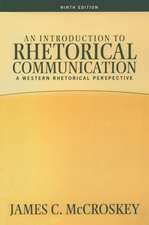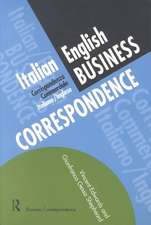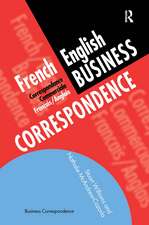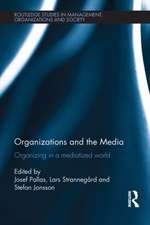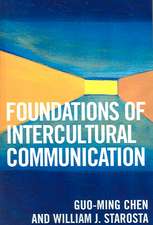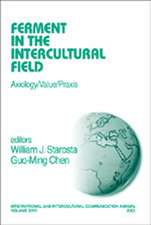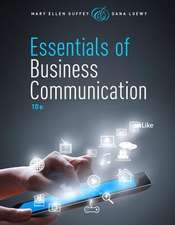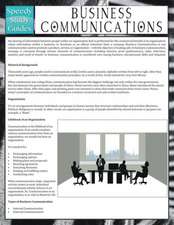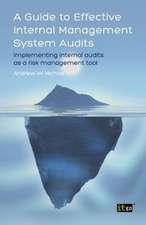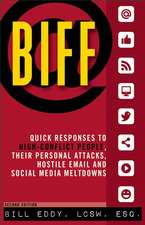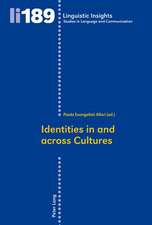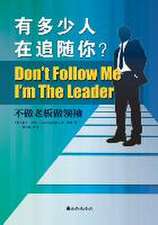Conflict Management and Intercultural Communication
Editat de Xiaodong Dai, Guo-Ming Chenen Limba Engleză Paperback – 27 feb 2017
In the globally interconnected world, conflicts often arise as a result of tensions between different cultural perceptions and diverse social preferences. Effectively managing conflicts and harmonizing intercultural relationships are essential tasks of intercultural communication research.
This book seeks to find effective intercultural conflict management solutions by bringing together a group of leading international scholars from different disciplines to tackle the problem. Consisting of two parts, this book covers major theoretical perspectives of conflict management and harmony development in the first and conflict management and harmony development in different cultural contexts in the second. Integrating the latest work on conflict management and intercultural harmony, Conflict Management and Intercultural Communication takes an interdisciplinary approach, adopts diverse perspectives, and provides for a wide range of discussions. It will serve as a useful resource for teachers, researchers, students and professionals alike.
| Toate formatele și edițiile | Preț | Express |
|---|---|---|
| Paperback (2) | 402.15 lei 6-8 săpt. | |
| Routledge – 27 feb 2017 | 402.15 lei 6-8 săpt. | |
| Taylor & Francis – 15 noi 2022 | 498.16 lei 6-8 săpt. | |
| Hardback (2) | 1008.17 lei 6-8 săpt. | |
| Taylor & Francis – 15 noi 2022 | 1008.17 lei 6-8 săpt. | |
| Routledge – 27 feb 2017 | 1040.04 lei 6-8 săpt. |
Preț: 402.15 lei
Nou
76.98€ • 83.64$ • 64.70£
Carte tipărită la comandă
Livrare economică 21 aprilie-05 mai
Specificații
ISBN-10: 1138962848
Pagini: 334
Dimensiuni: 156 x 234 x 28 mm
Greutate: 0.48 kg
Editura: Routledge
Cuprins
Recenzii
Donal Carbaugh, Professor Emeritus, University of Massachusetts Amherst, USA
'This edited volume on intercultural conflict could not appear at a better time! Incorporating multidisciplinary approaches, perspectives, and contexts, the renown contributors suggest ways to explain and diffuse enduring conflicts, predict or prevent others from erupting, and how to address or handle tensions so that constructive interconnectivity can be realized. The book brilliantly includes both established and updated thinking, Eastern and Western approaches, theoretical and applied perspectives on complex conflict landscapes, and highlights future research directions on intercultural negotiation, mediation, and harmony. As the world grapples with complex tensions within or between persons, communities, groups, or nations, this work provides scholarly hope that conflict can be meaningfully understood in more cultural contexts and managed or resolved through initiatives based on intercultural insights.'
Steve J. Kulich, Professor, Past-President of the International Academy of Intercultural Research (IAIR) (2019–2021), Founder of the SISU Intercultural Institute (2006–) and the Journal of Intercultural Communication & Interactions Research (JICIR) (2021–, Peter Lang).
‘Conflict Management and Intercultural Communication treats intercultural conflict from an impressive array of theoretical and philosophical perspectives. The book also creatively explores harmony-building in vital and fascinating contexts, including virtual environments. This book is a must-have resource for anyone interested in conflict resolution across cultural landscapes.’
Alberto González, Professor, College of Arts and Sciences, Bowling Green State University, USA
Notă biografică
Guo-Ming Chen is Emeritus Professor of Communication Studies at the University of Rhode Island, USA. He is the founding president of the Association for Chinese Communication Studies. He served as the Executive Director (2008–2014) and President of the International Association for Intercultural Communication Studies (2015–2017). Chen has published numerous books, articles, and book chapters.
Descriere
In this expanded second edition, Dai and Chen explore the effective ways to manage intercultural conflict and develop intercultural harmony, and takes an interdisciplinary approach to address the two issues. Covering major theoretical perspectives, it is a crucial reference for teachers, students, researchers, and practitioners alike.

